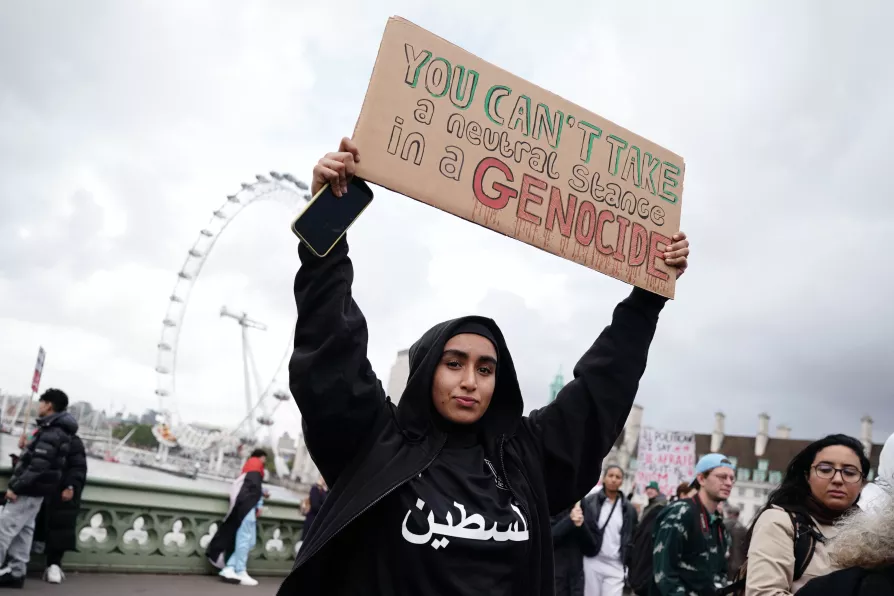The US-Israeli strikes against Iran are part of a decades-long war against the Islamic Republic which has refused to bow to US demands that it surrender its sovereignty, argues VIJAY PRASHAD

 SIDING WITH PALESTINE:
A woman protester spells it
out on a march in London,
October 28 2023
SIDING WITH PALESTINE:
A woman protester spells it
out on a march in London,
October 28 2023
FOR over a year now, the world has been inundated with the narrative that Israel has the “right to self-defence,” a claim used to shield and legitimise the relentless violence inflicted upon Palestinians — violence that has reached unimaginable levels.
Women and children bear the brunt of a brutal occupation that erases their humanity while subjecting them to relentless military aggression. In Gaza, the most densely populated strip on Earth, the siege tightens daily, depriving over two million people of the basic essentials of life.
In the West Bank, settler violence, condoned and facilitated by the Israeli state, has escalated to unprecedented levels. Palestinians are not only at the mercy of an occupying force but also trapped in a narrative that dehumanises them and normalises their suffering.
Historically, feminism has been a force for justice, taking on patriarchy, inequality, and colonial violence in its quest to liberate women. During the anti-apartheid movement in South Africa, women played a pivotal role in resisting both racial and gender oppression, demonstrating feminism’s potential to confront intersecting systems of injustice.

The catastrophe unfolding in Gaza – where Palestinians are freezing to death in tents – is not a natural disaster but a calculated outcome of Israel’s ongoing blockade, aid restrictions and continued violence, argues CLAUDIA WEBBE

As Saudi Arabia is hailed abroad for its ‘reforms,’ the reality for women inside the kingdom grows ever more repressive. On the International Day for the Elimination of Violence Against Women, MARYAM ALDOSSARI argues it is time to stop applauding the illusion – and start listening to the women the state works hardest to silence

With foreign media banned from Gaza, Palestinians themselves have reversed most of zionism’s century-long propaganda gains in just two years — this is why Israel has killed 270 journalists since October 2023, explains RAMZY BAROUD











